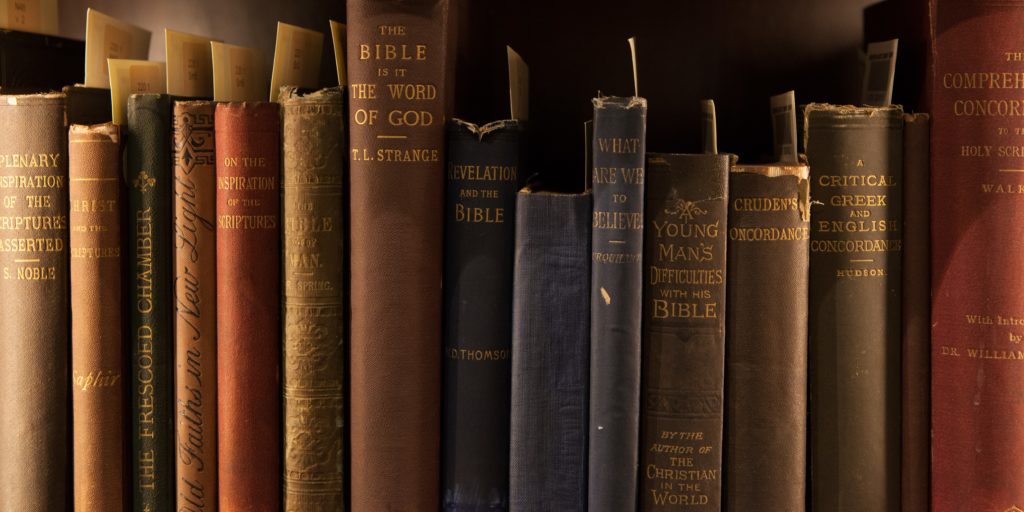
An instance occurred in Spurgeon’s church that made him blush with embarrassment. Certain members were not partaking of the Lord’s Supper because, in their judgment, inconsistent and unworthy persons were coming to the table. Never lacking in wit, Spurgeon responded, “That is highly probable; and he may be wearing your coat, and looking out of your eyes.”[1] He continued, “Is the Lord’s table to be a judgment-seat, whereat we are to revise the verdict of the church?…it is idle for you to be looking out for perfection.”[2] Instead, he encouraged his members, “if you have the faintest, feeblest faith in Jesus, come and welcome.”[3]
Spurgeon loved the Lord’s Supper because he loved Christ. Partaking of the bread and wine brought to his memory Jesus as his “covenant head and surety.”[4] In Spurgeon’s day, many Christians in England were drifting towards Roman Catholicism and thus wrong practices of the Lord’s Supper. Seeking to protect his congregants from error, Spurgeon often reminded them the true meaning of the Lord’s Supper.
First, the main object of the Lord’s Supper is that we should commune with Christ. Spurgeon emphasized that the principal purpose of the Lord’s Supper is to remember Christ’s person. The Lord said, “This do in remembrance of me,” (1 Cor 11:24, emphasis added). Spurgeon called this remembrance the “pith and essence of your business at his table.”[5] In remembering Christ, we are not to dream of Him as “a mere idea” for “The Christ of our dreams is but a dream; we need a real, living, personal Christ.”[6] Spurgeon said, “I would have the image of the Lord printed on the palms of my hands, that I might do nothing without him; and I would have it painted on my eye-balls, that I might see nothing except through him.”[7]
Second, the Lord designed the Supper to remind us of our salvation. Coming to the table necessitates humility, for “it is a very humbling thing that we should need anything to help us to remember Christ.”[8] There is “no better evidence of the fact that we are not yet perfectly sanctified, for, if we were, we should need nothing to help us to remember him.”[9] The bread is set forth as “the suffering of his body” and the wine “typifies the blood of the atonement whereby we are cleansed.”[10] The two “form a most suggestive symbol of the matchless death whereby we are made to live.”[11] The memorial of the Lord’s Supper is “better than if there had been a statue erected, or than if a document had been written….to keep alive in the memory of men the great fact that Jesus died.”[12]
Third, the Lord’s Supper should be observed often. Spurgeon knew that “our treacherous memories require” regularly observing the Lord’s Supper.[13] For, “we more easily forget than remember.”[14]He did not think taking the Lord’s Supper weekly was commanded in Scripture, but did believe it was an apostolic precedent and it was his own practice. Commenting on the words of Paul and Jesus, Spurgeon said, “I will not say that their words absolutely teach that we should frequently come to the table of communion; but I do think they give us a hint that, if we act rightly, we shall often observe this supper of the Lord….let it be often; do not, dear friends, absent yourselves long from the table.”[15] Surely, “Once or twice in the year can hardly be thought to be a sufficiently frequent memorial of one so dear.”[16]
Fourth, the Lord’s Supper is a meal for God’s people.[17] Spurgeon said, “The persons who come to the table must be, according to Christ’s rule, believers in him.”[18] The reason being that when people partake of the cup, they “own and accept joyfully our interest in that covenant which was made with Christ.”[19] Spurgeon warned, “If you are trusting in your own merits, go to your own table.”[20]
Lastly, the Lord’s Supper not only looks backward, but forward. Eschatology energizes the table. Spurgeon said, “this supper is a window, a window of agate, and the outlook of this supper is the Second Coming of the Lord from heaven. This supper is also a gate of carbuncle, and through this gate we are to watch for the return of the Lord Jesus Christ from the throne of his glory to this earth. The Lord shall come.”[21] Indeed, “We must keep on gathering at his table, giving thanks, breaking bread, and proclaiming his death, till the trump of the archangel shall startle us…at the last.”[22]
Come, Lord Jesus.
[1] MTP 34:455.
[2] Ibid.
[3] MTP 45:430. Spurgeon did not downplay cases of open sin, whereby partaking of the Lord’s Supper might bring judgment instead of blessing. In such cases, he encouraged his congregation to “let the elders of the church be informed, and it will be dealt with tenderly and firmly” (MTP 34:455).
[4] MTP 34:453.
[5] MTP 34:448.
[6] Ibid.
[7] Ibid., 449 (emphasis original).
[8] MTP 45:426.
[9] Ibid.
[10] Ibid., 427.
[11] Ibid.
[12] MTP 39:218.
[13] MTP 34:450.
[14] Ibid.
[15] MTP 51:313.
[16] Ibid.
[17] For how Spurgeon dealt with fencing the table when visitors were present, see Dr. Geoffrey Chang, “How Did Spurgeon Fence the Lord’s Table?,” Historical Theology, March 4, 2019, https://www.historicaltheology.org/articles/2019/3/4/how-did-spurgeon-fence-the-lords-table.
[18] MTP 39:224 (emphasis original).
[19] MTP 34:453.
[20] MTP 45:430.
[21] MTP 39:225 (emphasis original).
[22] MTP 45:426.